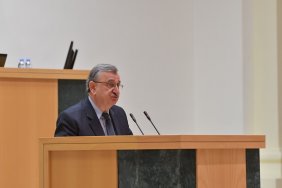The National Bank of Georgia has published its National Strategy of Financial Education, which says that the 57% of the country’s population keeping savings in cash at home, instead of banks.
"66.7% of the population of Georgia are active savers. However, only 33.1% of them have long-term financial goals. (In general, 40.4% of the population have long-term goals). In addition, there is less trust in formal systems, Only a very small number of the population has savings in a bank (11%, while a large part keeps savings at home, in the form of cash (57%), or entrusts them to family members for safekeeping (25%)", said the study.
The document also reads that the majority of the population was dissatisfied with their financial situation (58%) and believed that their financial condition limited their ability to do important things for them (67%), and 59% were nervous about paying their daily financial expenses.
“67% agree with the opinion that finances control their lives, and 65% worry that they may not have money. On the other hand, the majority disagrees with the opinion that many have financial obligations (62%)", said the bank.
In terms of controlling their own finances, 57% of the population had a plan to control their family's income and expenses (have a family budget), 88% paid their taxes on time, 71% controlled their own financial situation, 70% took a thoughtful approach to purchases and considered alternatives when purchasing, said the survey.
The National Bank of Georgia published a new draft of the National Strategy for Financial Education on Friday.
This effort serves to continue to take care of raising financial education across the country, said the bank.
The current Strategy for Financial Education was developed in 2016 as the first precedent for this type of document in Georgia, based on international experience and best practices. The Strategy highlighted the importance of financial education, raising awareness of the benefits of financial education, and was meant to enhance coordination and cooperation among stakeholders, providing greater capacity for financial education. The updated strategy paper was developed based on the experience and, hence, better responds to the current challenges of financial education.






